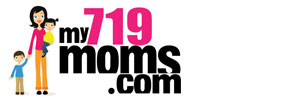Kids as young as eight can successfully wear contact lenses based on a study by Ohio State University. That’s good news for your tween son who desperately wants contacts because he doesn’t like how he looks in glasses and wants to play sports without constantly pushing his glasses up on his nose or simply wants a fresh look going into the new school year. You keep trying to talk him out of contacts because you think he’s too young and you’ve heard there are risks involved. However, now may be the perfect time to talk to your optometrist and allow your son to switch from glasses to contacts, and here’s why.
Photo by Wikimedia Commons user Bpw
Maturity and Responsibility
You might think that your child is too young for contacts, but age isn’t the most important consideration. Doctors are more concerned about maturity and responsibility. Contact lens wearers must be able to follow detailed care instructions, which includes cleaning them properly and taking them out regularly. If these directions aren’t followed, your child could develop corneal infections or eye irritation. In addition to following directions, your child needs manual dexterity to insert those tiny lenses properly. Your child is ready for contacts if he exhibits the required maturity and responsibility.
Cost
Contacts can be expensive, especially if your child has an unusual prescription. Prepare to pay at least $20 a month for the lenses, and your child also needs daily solution at $20 a month, a new $3 case every three months and a spare pair of glasses. You can find discounts and save money when you look for rebates, shop around for the best prices and buy contact lenses online with first-time buyer discounts like the one offered by Vision Direct.
Self-Esteem
The tween years are a tough time emotionally and physically for your child as he experiences hormonal changes and growth spurts. Wearing glasses could be one factor that contributes to low self-esteem, but contacts solve that problem. While you don’t want to give your son contacts solely so he looks better, seriously consider investigating contacts and investing in your tween’s confidence and self-esteem.
Activities
Contact lenses don’t have rims, so they provide wearers with better regular and peripheral vision than glasses do. That means your child will gain clearer vision and more enjoyment out of sports, reading and other activities. In addition to better vision, contacts also make a variety of activities easier to enjoy since they don’t fog up and do allow him to wear Speedo swim goggles or Oakley sunglasses during practices and competitions. The advantages of wearing lenses during activities makes them a wise choice for active tweens who are willing to take them out before bedtime every day.
Questions to Ask
When determining if your child is ready for contacts, ask him a few questions.
- Why do you want to wear contacts?
- Are you generally responsible for your physical hygiene and other belongings?
- Are you prepared to care for your contacts properly?
- Do you know the risks associated with wearing contacts?
- What are the consequences if you don’t care for them properly?
Discuss his answers to these questions with your optometrist as you decide if your tween is ready to make the switch to contact lenses.
| Georgia Maxwell is a busy working mother of two. She is the VP of marketing for a small organic food company and enjoys writing about health, wellness and parenting in her spare time. |





